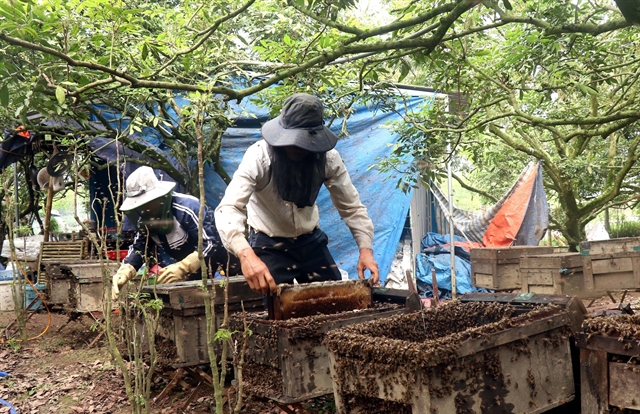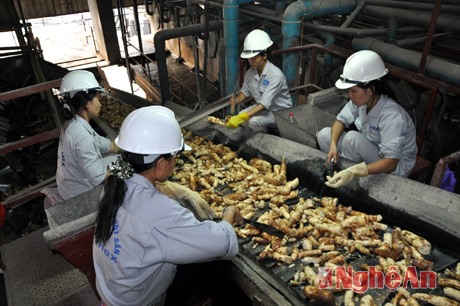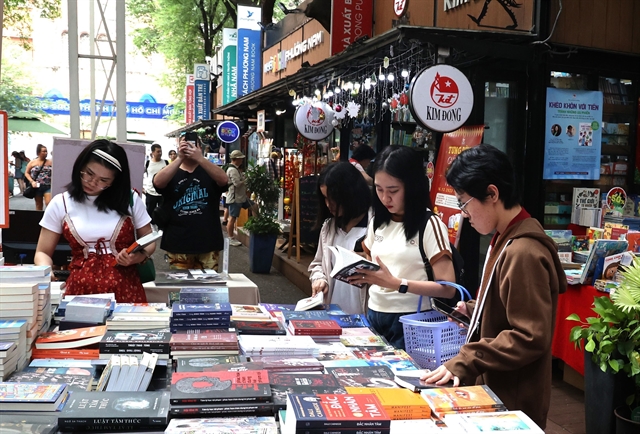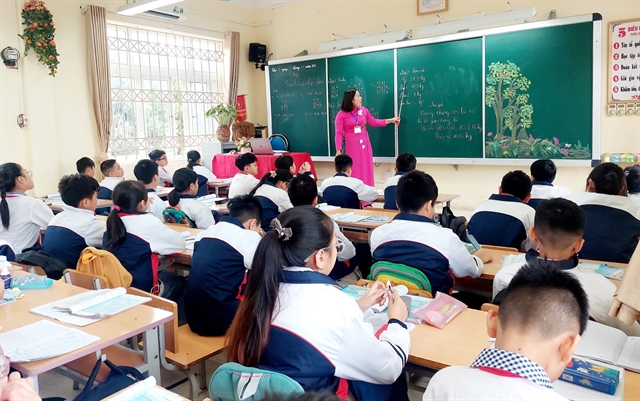 Economy
Economy

The Ministry of Finance has turned down proposals by the Vietnam Cassava Association (VCA) for preferential policies similar to those for rice and sugar to ensure its sustainable development.
 |
| Processing cassava roots at the Intimex Thanh Chương cassava starch processing factory in the central province of Nghệ An. — Photo baonghean.vn |
HÀ NỘI — The Ministry of Finance has turned down proposals by the Vietnam Cassava Association (VCA) for preferential policies similar to those for rice and sugar to ensure its sustainable development.
For example, the association proposed halving the 10 per cent value added tax imposed on cassava, arguing that 80 per cent of the products are exported and contribute to the country’s export revenue.
In addition, the association asked for high tariffs to be imposed on fresh cassave root exports to prevent them from being sold through the border gates to China, in order to ensure the supply of raw material for local processing factories.
The association sought the reduction of import tax on fresh cassava roots from Laos and Cambodia to Việt Nam to satisfy the country’s processing demand.
The VCA also asked the Ministry of Agriculture and Rural Development (MARD) to work with China’s Ministry of Agriculture so that the latter would allow the export of cassava pulp from Việt Nam to the Chinese market, as it did with Laos and Cambodia.
However, most of the proposals have been rejected.
The Ministry of Finance (MoF) said amending value added tax rates on cassava starch and processed products from cassava fall under the jurisdiction of the National Assembly. It also said the proposal was inconsistent with the VAT reform policy.
Regarding the proposal on the application of high tax rates to fresh cassava roots export, the ministry said the export tax rate stipulated under Decree 122 is currently zero per cent.
However, the ministry has predicted that global demand for dry chips for E10 gasoline will continue rising, thus the exports should be encouraged.
Futhermore, cassava is an industrial plant that helps alleviate farmers’ poverty, especially those in remote areas, contributing to political stability and national defence by creating jobs and income. The farmers will suffer the most from the export tax hike, the MoF argued.
Regarding the proposal to reduce the import tax on fresh cassava roots, the MoF said the current import tax of 3 per cent is suitable to protect Vietnamese cassava growers.
According to the association, with an area of about 550,000ha and a capacity of 10 million tonnes per year, the cassava planting industry attracts over 50,000 labourers working in industrial plants and processing facilities, and 1.2 million farmers.
Each hectare of cassava yields profit of about VNĐ11.6 million (US$515.5), slightly lower than that of rice (VNĐ14 million per ha per year).
Việt Nam’s export value of cassava and its products ranks second, behind Thailand, averaging $1-1.35 billion per year.
In 2016 alone, the export volume of cassava and products made from cassava reached 3.9 million tonnes, valued at $1.08 billion, ranking fifth among Việt Nam’s key export crops. — VNS









